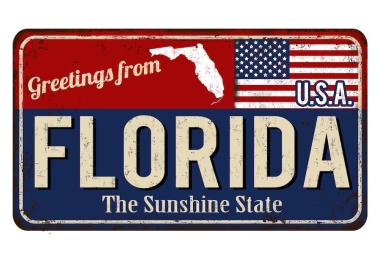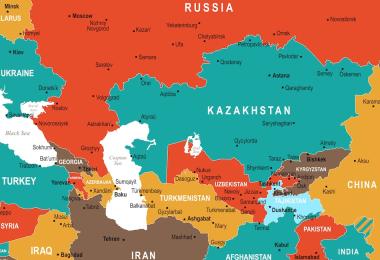Anyone who talks about Switzerland and its wine scene must bear in mind that the country is not part of the European Union, although it is surrounded by EU members. It also has its own wine production — with approximately 14,700 ha of vineyards — and a strong wine-loving tradition. A high gross domestic product goes hand in hand with a comparatively high wine consumption and the willingness to spend relatively large amounts of money per bottle. As well as their own wines, people traditionally drink wines from Italy and France, the country’s big wine-producing neighbours. Wines from Austria have established themselves in recent years, German Rieslings have caught on in the German-speaking areas, and Spain is the number three importing country. South Africa, Australia and Portugal also play important roles.
Importers and distributors
Around 150m litres of wine was imported into Switzerland in 2019 — some within the tariff quotas, some outside them and therefore associated with higher costs. Among the imported wines, red varieties dominate, although whites have seen some recent growth. There are no surprises at the top of the list of the largest wine importers in Switzerland. For quite some time, Coop, one of Switzerland’s two dominant retail companies, has been number one.
Migros, its largest food competitor, traditionally does not sell alcohol in its outlets, which drives Coop — founded as a cooperative in 1907 — to focus all the more intensely on this segment. It has both many outlets and an online arm, Mondovino, which sell high volumes of both Swiss and imported wines; in 2019, it imported almost 33m litres of wine, only marginally below the level of previous years. In 2016 it took over Casa del Vino SA, which specialises in Spanish wine, and Weinkeller Riegger in the same year.
The undisputed number two in the market is the discount chain Denner, part of the Migros empire; it imports more than 32m litres of wine. Together with Aldi and Lidl — which have secured a place in the Swiss discount segment that should not be underestimated — Coop and Denner control about half the country’s wine trade.
Other major players are not as well known to consumers, but are still important, such as the family-run wine merchant Bataillard, number three on the Swiss wine scene. It made a name for itself as a wine importer in the 1860s and significantly expanded again in the 20th century. Stefan Keller — not to be confused with the wine journalist of the same name — now heads the company, which imported almost 8m litres in 2019. Number seven importer, Weinkellereien Aarau, is also family-owned and brought a new 1.8m litre tank room on stream in 2017.
In addition to the big players, there are many medium-sized companies on the market. Mövenpick ranks among the top 10 wine importers; just a few places below is Bindella, which specialises in Italian wine. Rutishauser has been a benchmark for Australian wine for many years, while KapWeine specialises in South African wines. The company Gerstl — founded by Max Gerstl — has made a name for itself with, among other things, German wine, while Martel has gained a reputation for its Burgundy expertise.
The online market
Online retailer Flaschenpost bills itself as having “the biggest assortment in Switzerland”. Smith & Smith, headed by Markus Lichtenstein, is a popular site that works closely with the restaurant trade; online trade accounts for around 30 percent of its sales. Smith & Smith also sets standards in the presentation of wines at events.
Under boss Jacques Perrin, Cave SA, based in western Switzerland, sees itself as a club, providing its customers with extensive printed magazines.
One of the rising stars on the scene is Philipp Schwander. He successfully used the recognition he gained by becoming a Master of Wine to build up his Selection Schwander site, whose basic concept is to buy comparatively little-known wines and tell the stories of the producers in a way that brings them to life.
Delinat, which specialises in organic wines, also maintains particularly strong contact with its customers. Founded by Karl Schefer in 1980, it introduced its own organic guidelines three years after it opened. These have been tightened and go way beyond EU regulations in many respects.
Exhibitions, events and marketing
Zurich is the centre of wine marketing in Switzerland. Although some specialist and consumer tastings also take place in Geneva, Lausanne, Basel and Bern, Switzerland’s capital is the crucial place for anyone who wants to gain a foothold or maintain their position within the Swiss wine trade. Several events take place there most weeks of the year, run by national and foreign associations, winegrowers’ cooperatives or dealers. Highlights include Expovina Primavera in spring, organised by Bruno Sauter and aimed primarily at consumers, and Expovina in autumn, which is held on boats on Lake Zurich.
The Fête des Vignerons in Vevey in the canton of Vaud, which only takes place around every 20 years, is also well attended. It’s a once-in-a-generation project that has been going since 1797 and was last held in 2019. The pageant, in which thousands of people volunteer as actors and helpers and which attracted around 375,000 spectators last summer, also serves to promote Swiss wine. Swiss Wine Promotion SA, based in Bern, which does the job year round, is headed by Nicolas Joss, who was appointed as managing director in 2019.
Sommeliers and educators
The imaginary border between the western French-speaking part of Switzerland and the north-eastern German-speaking part of the country also runs through the wine scene. The Association Suisse des Sommeliers Professionnels (ASSP) has a higher profile in the French-speaking areas and Ticino than in the German-speaking parts. Rather, in the latter, it is noticeable that many Germans work in the restaurant industry and are members of the Sommelier Union Deutschland eV. The country’s best-known sommeliers include the German Marc Almert (Baur au Lac hotel/Pavillon restaurant), who was named Best Sommelier of the World last year, and the British-born, soon-to-be Master of Wine (MW), Amanda Wassmer-Bulgin (Grand Resort Bad Ragaz). Italian-born Paolo Basso, who is now a speaker, lecturer and wine merchant, and Edmond Gasser, who works in Lausanne (Beau-Rivage Palace Hotel/Anne-Sophie Pic restaurant), are also well-known names on the sommelier scene.
The Swiss Sommelier/Sommelière qualification was developed by the ASSP in conjunction with several training institutions. However, it can also be pursued without the aim of gaining a professional qualification.
The Académie du Vin in Zurich, headed by Joachim Günther, is aimed at both professionals and wine lovers. Agroscope, which has centres in Wädenswil and Changins, offers training and further education for professionals and ambitious amateurs — for example, it offers the WSET Diploma in cooperation with the Wine Academy Austria. People with this qualification can expand their networks in the Wine Academics Club: Swiss agency owner Miriam Grischott is president of the international association, and wine journalist Cécile Richards heads the Swiss section.
PR, media and influencers
Wine journalism has existed for a long time in Switzerland and has often set new standards. The Schweizerische Weinzeitung wine journal was founded in 1893 and was a B2B publication for many years before being turned into a consumer magazine 10 years ago. The publicist Wolfram Meister, who previously published the Weinwisser newsletter with the Bordeaux specialist and former Mövenpick lead buyer René Gabriel, has been responsible for the magazine ever since.
The magazine Vinum was founded by enthusiasts in association with Rolf Kriesi in 1980. It has since expanded beyond the borders of the country and is now managed by editor-in-chief Thomas Vaterlaus, who demonstrates a particular feature of Switzerland — wine journalism and PR are not necessarily mutually exclusive. Together with Alicia Mettler, Vaterlaus also runs Mettler Vaterlaus GmbH, one of the most prominent Swiss PR companies in the wine sector.
Andreas Keller, former editor-in-chief of Vinum, also works in the promotional sector. Together with Susanne Scholl and wine journalists Stefan Keller and Martin Kilchmann, he founded the Mémoire des Vins Suisses (MDVS) project in 2002, which has since brought together many of the best wineries in Switzerland. MDVS is often seen as the equivalent of the German Association of Premium Wine Estates (VDP) but places a particular focus on the ageing capacity of the wines. All its members must provide a certain number of bottles of each vintage for archiving; experts and consumers then have the benefit of regular tastings of older wines.
Well-known influencers in Switzerland also include wine journalists Chandra Kurt, Alexandre Truffer and Pierre Thomas. They all have one thing in common: in a small country like Switzerland, people know and appreciate one another.








